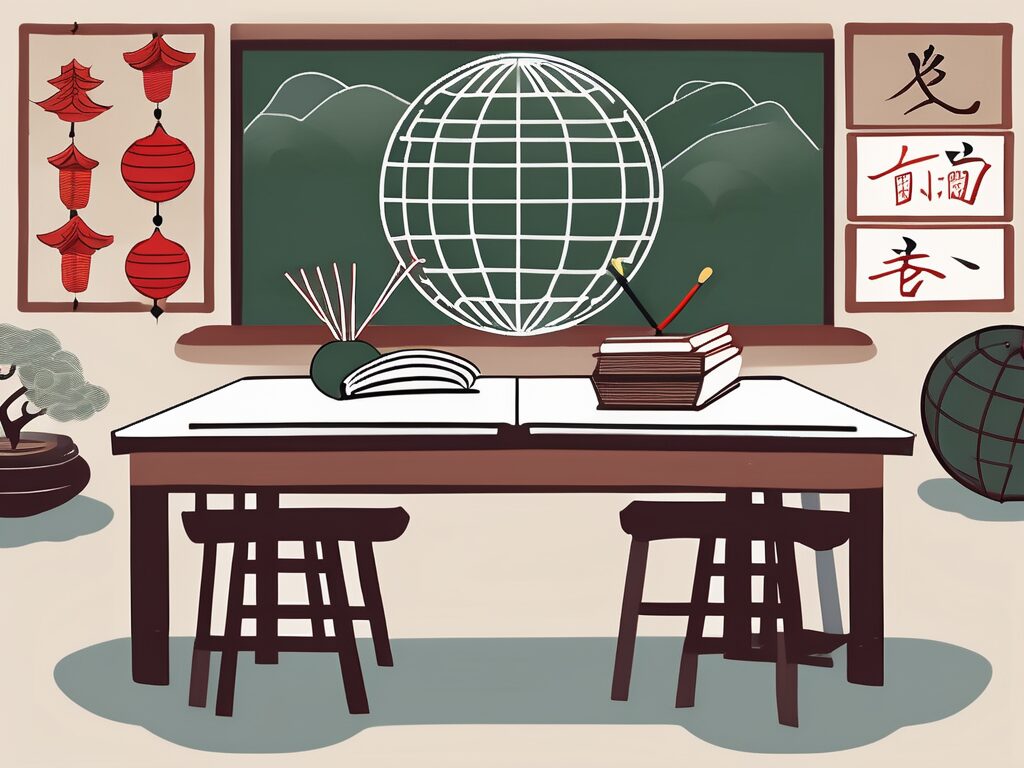Top 5 Challenges for International Teachers in China 2025
Teaching internationally in China presents a distinctive array of experiences that can be both fulfilling and demanding. The appeal of engaging with a rich cultural landscape, the potential to significantly impact students’ educational journeys, and the opportunities for both personal and professional development are compelling reasons for educators to pursue this path. However, prospective teachers must also be prepared to navigate several challenges that may arise. This guide outlines the primary obstacles faced by international educators in China and offers strategies for effective adaptation.
1. Language Proficiency
The language barrier is a prominent challenge for international teachers in China. Although English is a medium of instruction in many international schools, the majority of the population communicates primarily in Mandarin. This discrepancy can complicate interactions outside the classroom environment.
- While fluency in Mandarin is not a prerequisite for teaching, a foundational understanding can facilitate daily activities such as shopping and navigation.
- Engaging with the local language can enhance cultural immersion and provide valuable insights into the societal context.
Acquiring a new language may seem daunting; however, it is an opportunity for personal growth akin to mastering a musical instrument—requiring time, dedication, and perseverance, but ultimately rewarding.
2. Cultural Nuances
Understanding and adapting to cultural differences is another significant challenge for international educators. China’s rich cultural heritage may differ markedly from Western norms, influencing various aspects of the teaching experience, including classroom management and communication with stakeholders.
- The concept of ‘face’ (mianzi) is integral to Chinese society, emphasizing the importance of reputation and dignity. Educators must approach feedback and conflict resolution with sensitivity to avoid causing loss of face.
- Familiarity with cultural subtleties can enhance the educational experience, allowing teachers to connect more deeply with students and colleagues.
Deciphering these cultural intricacies may initially appear complex, but the rewards of understanding and integrating into the local culture are substantial.
3. Variations in Teaching Methodologies
Teaching methodologies and expectations in China can differ significantly from those in Western educational systems. The Chinese education system is often characterized by a more structured and examination-oriented approach, which may pose challenges for educators accustomed to interactive and flexible teaching styles.
- International teachers are encouraged to introduce innovative pedagogical strategies that complement traditional methods, fostering a more dynamic learning environment.
- Striking a balance between established practices and new approaches can enhance student engagement and learning outcomes.
Adapting one’s teaching style can be likened to creating a fusion cuisine—combining diverse elements to produce a unique and effective educational experience.
4. Visa and Regulatory Compliance
Navigating visa and legal requirements is a critical aspect of teaching in China. The process can be intricate and subject to frequent changes, which may induce stress for international educators unfamiliar with the regulations.
- Many educational institutions provide assistance with visa applications, and various agencies specialize in guiding teachers through the legal landscape.
- Thorough research and understanding of the visa process are essential to ensure compliance and avoid potential complications.
While the initial navigation may resemble a complex maze, gaining clarity on the requirements can significantly ease the process.
5. Institutional Standards and Support
When selecting a school in China, it is imperative for international teachers to consider the institution’s academic standards, teaching philosophies, facilities, and global accreditation. These factors play a crucial role in shaping the educational experience and professional development opportunities available to educators.
- Researching schools’ reputations and their alignment with personal teaching values can lead to a more fulfilling experience.
- Engagement with institutions that prioritize professional development and support for international teachers can enhance job satisfaction and career progression.
By prioritizing these considerations, educators can position themselves for success in their international teaching endeavors.
Conclusion
Despite the challenges associated with teaching in China, the experience can be profoundly rewarding. It offers educators the chance to immerse themselves in a vibrant culture, positively influence students’ lives, and achieve significant personal and professional growth. Prospective teachers should view these challenges as opportunities for development and enrichment, ultimately enhancing their teaching journey.
Enhance Your Teaching Career with IPGCE
Are you ready to tackle the challenges of teaching internationally in China and elevate your career? The International Postgraduate Certificate in Education (iPGCE) program is designed to enhance your qualifications, connect you with a global network of educators, and provide a comprehensive understanding of international curricula. With our program, you will join the ranks of educators who experience increased interview callbacks, promotion rates, and salary growth. Don’t let isolation or the balance between work and study hinder your progress. Embrace the opportunity for professional advancement with our flexible online study options. Join the UK’s leading Teacher Training Course and transform challenges into pathways for success.

